7th Annual SNHU Conference Explores Technology in Healthcare

Throughout the past seven years, Southern New Hampshire University (SNHU)’s Thought Leaders Conference has provided a powerful, collaborative space for healthcare students, professionals and anyone passionate about the future of health in their communities.
The conference serves as an opportunity to network, share and grow through conversations about contemporary issues in healthcare. It’s a free, virtual event open to the public — not just the SNHU community — and every year, it attracts attendees and speakers from across the country.
 “The 'Thought Leaders' series was initially designed to share what SNHU does best: educate!” said Dr. Peggy Moriarty-Litz, EdD, MS, RN, CNE, the chief nursing administrator and executive director of nursing programs at SNHU. “It was borne out of the intent to provide community service to our stakeholders in healthcare.”
“The 'Thought Leaders' series was initially designed to share what SNHU does best: educate!” said Dr. Peggy Moriarty-Litz, EdD, MS, RN, CNE, the chief nursing administrator and executive director of nursing programs at SNHU. “It was borne out of the intent to provide community service to our stakeholders in healthcare.”
Sponsored by Catholic Medical Center, The Elliot and Harvard Pilgrim Health Care, and now in its seventh year, the conference has evolved and grown to remain relevant and valuable. Dr. Stacey Rosenberg, DNP RN ACNS-BC CNE, the associate chief nursing administrator at SNHU, reflected on how far the conference has come.
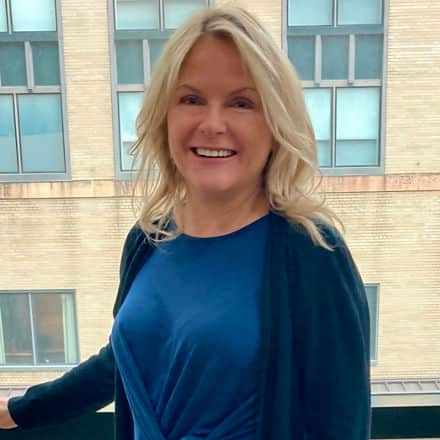
“It began as a face-to-face regional event and has transformed into a national online offering,” she said.
The event is a particularly beneficial opportunity for healthcare professionals to earn contact hours, an important part of ongoing licensure. SNHU Nursing is accredited as a provider of nursing continuing professional development by the American Nurses Credentialing Center's (ANCC) Commission on Accreditation. If participants attended both days, they had the chance to earn up to 7.5 contact hours.
Find Your Program
Learnings From the Conference
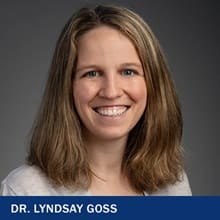
Hundreds of attendees gathered, mid-April, over two days to explore 2024’s conference theme: “An Interprofessional Journey Beyond Boundaries: Technology and Health.” Each session was centered around a shared goal: offering innovative information and effective strategies surrounding technology in healthcare. Sessions also shed light on issues of access in vulnerable populations.
“Staying up to date on technology is necessary in healthcare to ensure positive outcomes,” said Dr. Lyndsay Goss, DNP, RN, CNE, NPD-BC, director of nursing continuing professional development at SNHU. “Taking time to address considerations surrounding technology use in health promotes responsible and ethical use.”
Here’s what some of this year’s sessions explored.
A Look at Generational Differences in Healthcare Professionals
 When considering what she wanted to focus on in her talk, Dr. Beth VanOrsdale, DNP, MHA, CPHRM, CNE, dean of academic effectiveness at SNHU, felt inspired by this year’s focus on technology. To her, the secret to understanding how technology can be best leveraged in healthcare is understanding who is using it.
When considering what she wanted to focus on in her talk, Dr. Beth VanOrsdale, DNP, MHA, CPHRM, CNE, dean of academic effectiveness at SNHU, felt inspired by this year’s focus on technology. To her, the secret to understanding how technology can be best leveraged in healthcare is understanding who is using it.
“People are how we make sustainable progress in implementing technology,” she said. “My session highlighted the different generations that we have working in healthcare today, and how we can use that diversity to forge an even better team and better solutions.”
Drawing on years of experience in risk management, healthcare quality and academia — and a passion for teamwork — VanOrsdale hoped attendees would walk away from her session with a deeper knowledge of the five generations currently working as healthcare professionals.
Each one, she said, brings unique value to the field, and it’s critical that the industry come together to bridge gaps between them — particularly against a backdrop of rapidly changing technology.
“As technology grows, the need for collaboration among healthcare professionals increases so that we remain true to the core values of our profession,” she said.
Data and Technology: Tools for Healthcare Access
![]() Dr. Lisa Bujno, family nurse practitioner and chief quality officer/risk manager at Ammonoosuc Community Health Services (FQHC), is no stranger to SNHU. In fact, she’s had a number of SNHU interns assist with projects at her health center — and it’s part of the reason she wanted to present at this year’s Thought Leaders Conference.
Dr. Lisa Bujno, family nurse practitioner and chief quality officer/risk manager at Ammonoosuc Community Health Services (FQHC), is no stranger to SNHU. In fact, she’s had a number of SNHU interns assist with projects at her health center — and it’s part of the reason she wanted to present at this year’s Thought Leaders Conference.
“We've been so impressed with the caliber of SNHU students' work, and grateful to have had the benefit of their help,” Bujno said, “Speaking at the conference seemed like a chance for me to give back.”
As she considered this year’s theme, Bujno turned to what she and many nurse practitioners know best: primary care. With over 40 years of experience, she knew advancements in technology can lead to advancements in access, too. So, she highlighted the importance of both.
“My session was about using data and technology in the context of interdisciplinary practice to improve the health of our primary care population,” she said. “Quality healthcare should be available to everyone.”
According to Bujno, healthcare professionals who actively engage with data and technology aren’t just making an impact at the individual level; they’re contributing to the health of the industry at large.
“Proactively harnessing the potential of technology and data to improve patient care is one approach to ensuring the sustainability of our healthcare system.”
Internet Access and Health Outcomes
![]() Conversations centered on access to healthcare weren’t just limited to one session at this year’s Thought Leaders Conference. Dr. Nene Okunna, PhD, MPPA, MPH, is an associate professor in the Department of Public Health Sciences at West Chester University Pennsylvania. She led a presentation outlining key findings related to digital health technologies: who uses them, and why others don’t.
Conversations centered on access to healthcare weren’t just limited to one session at this year’s Thought Leaders Conference. Dr. Nene Okunna, PhD, MPPA, MPH, is an associate professor in the Department of Public Health Sciences at West Chester University Pennsylvania. She led a presentation outlining key findings related to digital health technologies: who uses them, and why others don’t.
“My presentation focused on the results of a study that compared the accessibility and utilization of electronic health information in rural and urban areas,” Okunna said. “According to the study's findings, rural residents utilized digital health technologies at a significantly lower rate than their urban counterparts, despite having inferior health outcomes.”
Okunna’s talk explored what factors may be contributing to the results of this study, as well as similar patterns seen in modern healthcare. Here, the conversation returned to the issue of healthcare access.
“One of the obstacles to accessing and utilizing broadband internet was its scarcity, with a higher prevalence of reports from rural inhabitants compared to their urban counterparts,” she said.
But to Okunna, the future looks promising — so long as healthcare professionals continue to prioritize internet access as a crucial health resource.
“The delivery of healthcare is being disrupted by technology, which also presents many prospects for enhancing services and patient outcomes,” she said. “It is crucial to acknowledge that a substantial segment of the populace needs access to these technologies.”
Navigating AI in Healthcare
 It would be difficult to speak about technology and healthcare these days without acknowledging AI’s role. That’s why Dr. Matt Frederiksen-England, chief compliance officer for the University of Missouri Health Care System and adjunct faculty at SNHU, and Laurie Lewis, clinical faculty coordinator of health professions at SNHU, used the Thought Leaders Conference as an opportunity to talk about it.
It would be difficult to speak about technology and healthcare these days without acknowledging AI’s role. That’s why Dr. Matt Frederiksen-England, chief compliance officer for the University of Missouri Health Care System and adjunct faculty at SNHU, and Laurie Lewis, clinical faculty coordinator of health professions at SNHU, used the Thought Leaders Conference as an opportunity to talk about it.
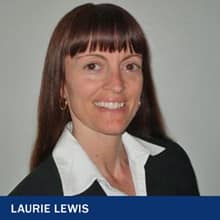
“As we all know, the healthcare industry is undergoing a seismic shift driven by the rapid advancement of artificial intelligence,” said Lewis. “Exploring how we can harness these innovations to surpass traditional boundaries and deliver better patient outcomes is a topic of paramount importance.”
Frederiksen-England and Lewis presented on a number of key topics in their session — from privacy and security of health data, to mitigating bias and ensuring fairness, to building patient and public trust (and much more). Lewis said she felt a meaningful connection to this year’s Thought Leaders focus.
“The event’s overarching theme deeply resonated with me,” she said. “The opportunity to share insights and collectively discuss the future of healthcare and artificial intelligence was a wonderful experience.”
The Formula for Strong Communication
 At the center of much of today’s technology is what sounds like a basic function: communication. But as Dr. Matt Glowiak, PhD, LCPC, CAADC, NCC, ACS and Dr. Penny Lane Hamblin, both clinical faculty at SNHU, shared in their session: effective communication is of utmost importance when it comes to patient care. And for it to be effective, it needs to be empathetic and multiculturally competent.
At the center of much of today’s technology is what sounds like a basic function: communication. But as Dr. Matt Glowiak, PhD, LCPC, CAADC, NCC, ACS and Dr. Penny Lane Hamblin, both clinical faculty at SNHU, shared in their session: effective communication is of utmost importance when it comes to patient care. And for it to be effective, it needs to be empathetic and multiculturally competent.
 “As mental health professionals conducting psychotherapy (talk therapy), words are at the center of what we do,” Glowiak said. “Sharing our insights in a multidisciplinary setting allows others to further adapt their communication while working with patients or clients — to not only enhance their work, but help others.”
“As mental health professionals conducting psychotherapy (talk therapy), words are at the center of what we do,” Glowiak said. “Sharing our insights in a multidisciplinary setting allows others to further adapt their communication while working with patients or clients — to not only enhance their work, but help others.”
Reflecting on this year’s conference, Glowiak shares VanOrsdale’s appreciation for the power of collaboration.
“In a dynamic world where things are constantly evolving and changing, the only way to truly keep up is by working together,” he said. “We often speak of how providers exist in ‘silos.’ Efforts to break down silos focus on promoting interdisciplinary collaboration, and this is precisely what the Thought Leaders series aims to achieve.”
Why Technology as This Year’s Focus
 While SNHU’s Thought Leaders Conference always keeps interdisciplinary connection at the center, each year’s theme is chosen carefully. In fact, Dr. Toni Clayton, executive director of health professions at SNHU, said the Thought Leaders committee begins planning over six months in advance.
While SNHU’s Thought Leaders Conference always keeps interdisciplinary connection at the center, each year’s theme is chosen carefully. In fact, Dr. Toni Clayton, executive director of health professions at SNHU, said the Thought Leaders committee begins planning over six months in advance.
Why? “To select a theme that is timely, and meets the changes and interest of the healthcare industry,” she said. “The theme this year best represents where we are as a society, navigating the impact of AI in our jobs, schools and communities. There is no disputing that AI can be leveraged to improve processes, services and diagnoses.”
 Dr. Gail Tudor, Ph.D, program director of public health at SNHU, agrees, and said that understanding and appropriately implementing technology plays a critical role in the future of healthcare — particularly as it relates to access.
Dr. Gail Tudor, Ph.D, program director of public health at SNHU, agrees, and said that understanding and appropriately implementing technology plays a critical role in the future of healthcare — particularly as it relates to access.
“As the first keynote said, technology is our greatest ally. It connects isolated groups to the expertise they need to be healthy,” she said. “We need to continue to improve technology, and train people how to use it effectively, in order to improve the health of all people, all communities, to reach health equity."
What Participants Left With
This year’s Thought Leaders Conference made SNHU history was its largest one yet, with nearly 500 enrollments.
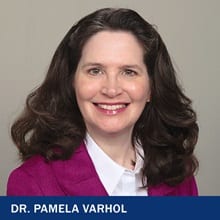
The takeaways for attendees were many. For some, it was the opportunity to learn from experts in their field and stay sharp in their practice. For others, collecting free contact hours had great appeal. For many, it goes back to collaboration and a feeling of connectedness — particularly in what, for most, has become an increasingly remote world.
Dr. Pam Varhol, EdD, RHIA, senior associate dean of health professions at SNHU, believes in the impact this event has on those already in the field, as well as those who will be.
“This is a great opportunity for professionals to network with leaders in the field and those working in academia, and connect with future leaders (our students),” she said. “People gain incredible insight from attending the conference.”
Discover more about SNHU’s healthcare degrees: Find out what courses you'll take, skills you’ll learn and how to request information about the program.
Abigail (Abby) Mark ’23G is a brand copywriter and contributing content writer at Southern New Hampshire University (SNHU). Prior to her role in marketing, Abby spent four years on SNHU’s student experience team as an academic advisor and team lead of academic advising. In 2018, she graduated from Saint Anselm College with a Bachelor of Arts in Psychology and went on to earn her Master of Arts in English & Creative Writing at SNHU in the spring of 2023. She recently joined the adjunct faculty team at SNHU and will begin teaching creative writing to online undergraduate students. Abby hopes her writing will help prospective students and employees alike see just how transformative SNHU could be for them (as it’s been pretty transformative for her). Connect with her on LinkedIn.
Explore more content like this article

The Importance of Health Education
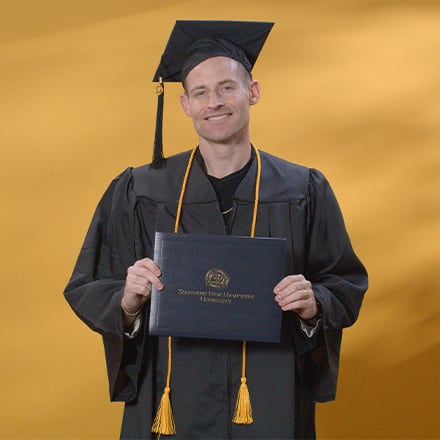
SNHU Spotlight: Philip Hensarling, BS in Healthcare Administration Grad

SNHU Spotlight: AnnMarie Kulis, MS in Healthcare Administration Grad
About Southern New Hampshire University

SNHU is a nonprofit, accredited university with a mission to make high-quality education more accessible and affordable for everyone.
Founded in 1932, and online since 1995, we’ve helped countless students reach their goals with flexible, career-focused programs. Our 300-acre campus in Manchester, NH is home to over 3,000 students, and we serve over 135,000 students online. Visit our about SNHU page to learn more about our mission, accreditations, leadership team, national recognitions and awards.

